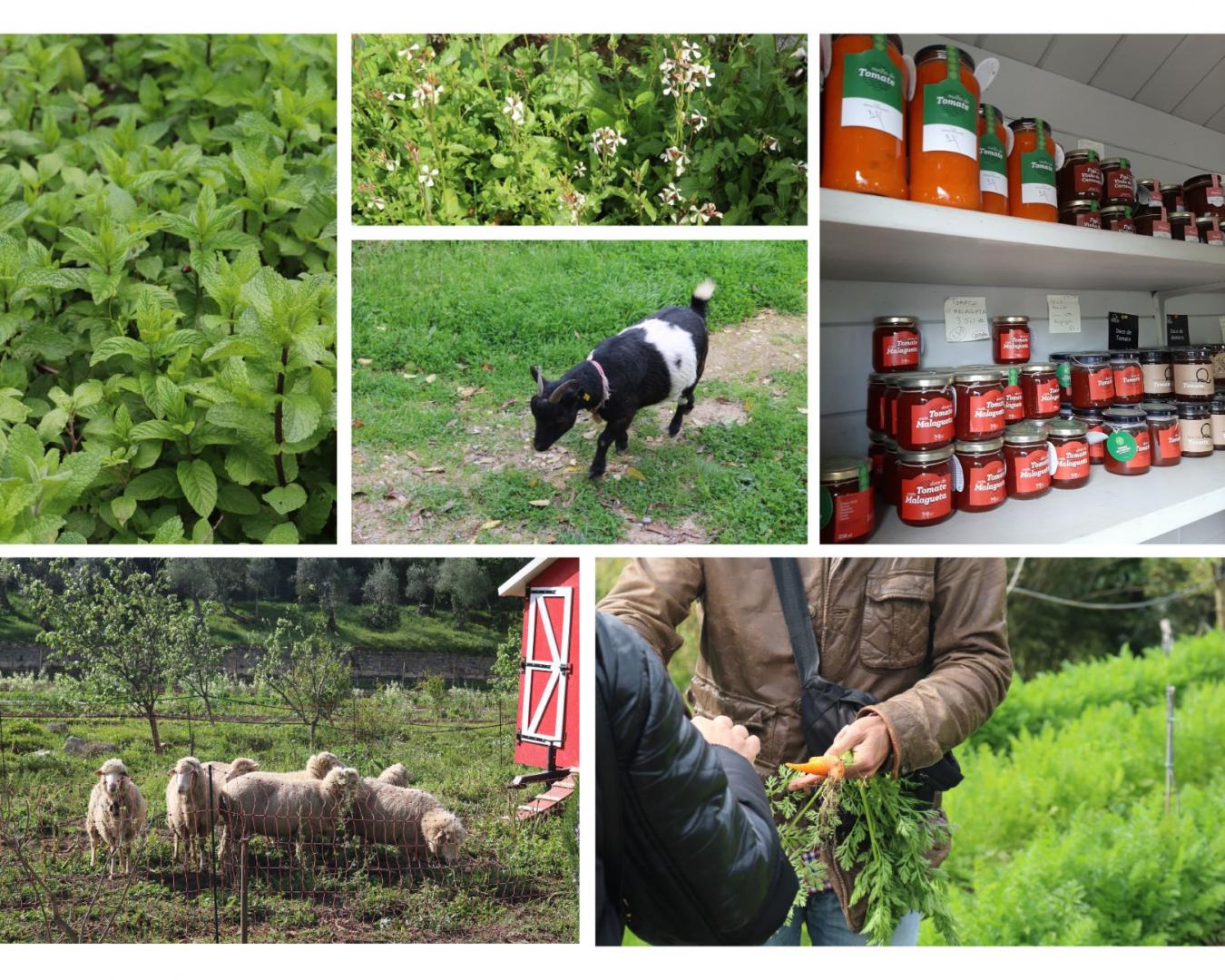
Cascais – Municipality led approaches with diverse stakeholders
About Cascais:
The municipality of Cascais, a city in the west coast of Lisbon with around 210,000 inhabitants and covering 97,4 km2, has taken huge leaps forward in implementing nature-based solutions, through the positioning of Urban Agriculture as an integral component of Green Infrastructure. Cascais green transformation is increasingly internationally recognised.
Background to Urban Agriculture in the Municipality:
Back in 2009, the municipality of Cascais, started its first allotment/ community gardens within the scope of Agenda 21, in order to answer the people’s call to convert green spaces into productive land plots. In Cascais, a large part of the population comes from rural areas and has held on to some of its old traditions to preserve a sense of local identity. This is evident from the number of spontaneous vegetable gardens found throughout the city.
Besides the interest of older residents in agriculture, younger and middle-aged people also seek places to grow food, to connect to nature or to teach their kids where their food comes from. Since its inception, the community gardens project has been an undoubted success, with an ever-increasing waiting list.
How it works:
The community gardens are places of energy and conviviality among neighbours. They involve people from diverse backgrounds, but who share a common interest in the growth of nutritious food. Everyone can have a plot of land for free within certain criteria. Applicants must live in Cascais but must also comply to the rules of the project, which are:
- Only organic agricultural production can be undertaken
- Mandatory but free training must be undertaken
- Plots must be kept cultivated and in an orderly state
- There should be no plastics, CDs, cans or similar synthetics used
Overall, three key factors have guaranteed the success of the project:
- Close monitoring and follow up with regular visits from the municipality team;
- A dynamic waiting list, which is continuously updated through an online form;
- Spaces are well-integrated into the landscape and are visible to other residents and visitors (e.g. through use of low fencing).
From community gardens to a full urban agriculture program:
Since 2009, the success of the project has generated a strong political commitment which has resulted in further investment in this type of land use. Although people were happy with the community gardens it was, later on, felt necessary to think more strategically and to expand activities further. In 2012, the Municipality launched the Schools Vegetable Gardens project, which nowadays has around 40 schools involved. Since then, several other projects were launched, which include:
- The community orchards and vineyards
- A larger organic vegetable garden for the visitors to come and “pick their own” vegetables – Horta da Quinta do Pisão
- An organic vegetable garden located inside a prison, for therapeutic and integration purposes – Horta do Brejo
- Restoration of the old tradition of Carcavelos winemaking; a special fortified wine only produced in the smallest wine region of Portugal, part of the territory
Other future projects are also being developed related to “market gardening” - a farming concept that enables farmers to grow produce on small land plots within the city and to derive income from this. In addition, the Cascais Land Bank, aims to make underutilised land available for urban agriculture.
Overall the achievements of the project have been impressive to date and include:
- 708 plots of land allocated;
- 3 community vineyards with 19 producers
- 4 community orchards with 24 fruit growers
- 1,5 ha of “pick-your-own" vegetable garden – Horta da Quinta do Pisão
- 1 vegetable garden located inside a prison – Horta do Brejo
- 1,5 yards for the production of Carcavelos Wine – Vinha do Mosteiro de Santa Maria do Mar
- 13 vegetable gardens within the day centers
- Around 2000 pupils involved with school gardens
- 1900 people on the waiting list
Success factors behind urban agriculture in Cascais:
The key to Cascais’s success has been the involvement of diverse departments from the Municipality and through the participation of neighbouring cities to help foster a sense of local ownership amongst communities. In addition, the Municipality of Cascais has been able to undertake successful greening initiatives, through extensive planting of native trees and plants in accordance with local biodiversity priorities.
Meanwhile, invasive species such as eucalyptus are being removed, whilst grazing animals, such as goats, horses and donkeys, are being utilised to manage land on a more sustainable basis (for tillage, weeding and pest control).
From a social perspective, Cascais is also working to closely integrate and deliver diverse benefits to marginalised groups and to disadvantaged communities, including people with disabilities and the local prison population. Collaboration with a diverse range of stakeholders is very much at the heart of policy objectives. This includes, for example, working with chefs and the gastronomy industry to source produce from local farms, thereby reducing food miles.
The example of Cascais proves that transforming our cities to become more beautiful, pleasant and resilient habitats does not need to be complicated.
An article about Terras de Cascais written by Metka Novak
all images to: ProGIreg Project


